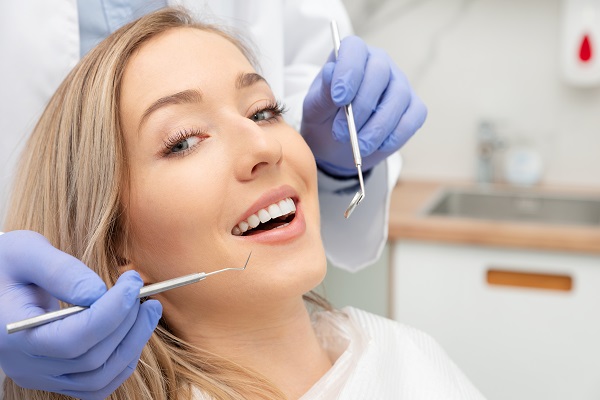The Effect of Cavities on the Entire Body

Cavities are small holes that only affect a small portion of a tooth, right? They can be if you see the dentist as soon as you notice them. For the people who put off seeing the dentist until they run out of options, cavities can become so much more.
A small hole in the tooth can become a bigger hole in the tooth. The bigger hole acts as a gateway for bacteria to gain access to the inner tooth. At this point, the problem tooth starts to lose structural integrity, as bacteria attack the enamel, dentin, and dental pulp. This is the point where a person starts to experience some level of toothache. Here are some possible scenarios for the person who finds a workaround for the pain.
A complete health dentist explains the anatomy of cavities
Many oral health problems come down to the unchecked activity of harmful mouth bacteria. The timely intervention will limit bacterial attacks to a tiny hole in the enamel. Ignoring the problem leaves the bacteria to ‘drill’ a hole right into the inner tooth. It just so happens that the inner tooth has blood vessels and other structures that link the tooth to its surroundings.
By extension, these surrounding structures have blood vessels that link the mouth to the rest of the body. This means that harmful mouth bacteria can access a direct link to the rest of the body. It then follows that a cavity has the potential to affect systemic health. Here is how:
1. An infection resulting from a cavity can morph into gum disease
When mouth bacteria create a hole in the tooth, their end-game is to create a bigger hole and eventually take over the tooth. Like a conquering army, the infection will do its best to spread to other teeth as well as the gums. If bacteria succeed in gaining a foothold in the gums, the following happens:
- Mild gum disease remains largely without symptoms, except for bleeding and some tenderness
- Periodontitis happens if gum disease progresses
- The infection from advanced gum disease causes inflammation or it could make its way into the bloodstream
2. Tooth infection can trigger an immune response in the form of systemic inflammation
If the body remains in a constant state of inflammation, other side-effects start to show up. Long-term inflammation could result in difficulty in the management of diabetes. Inflammation hinders the effective action of insulin, which can cause a rise in blood sugar. Studies demonstrate the link between the infection that is gum disease and diabetes
3. Infection can travel from the mouth to the rest of the body
Without medical treatment or an especially strong immune response, infections will spread. Even mouth bacteria can make their way to other parts of the body. For example:
- A serious bacterial infection of the mouth can make its way down the respiratory tract and into the lungs, causing bacterial pneumonia
- Patients with weak immune systems are at greater risk of a mouth infection becoming a systemic infection
- Bacterial colonies from the mouth can travel to the heart to cause endocarditis, an infection of the heart's inner lining
Over and above the infection angle of cavities, there is also a quality of life angle that ultimately affects general health.
Tooth decay can cause poor nutrition
The pain that comes with tooth decay limits the sufferer’s diet. This not only denies the person their favorite meals, but it also keeps them from taking in useful nutrients.
Keeping cavities at bay is easy
We have a complete health dentist that is dedicated to keeping your mouth and body healthy. If you have a cavity that’s nagging you, even if it is only at the back of your mind, call us. The dentist will take care of it in a few short minutes.
Check out what others are saying about our dental services on Yelp: Cavities in Wayne, PA.
Related Posts
For patients missing multiple teeth, All-on-4® dentures are an excellent restorative option. These implant-supported dentures can transform a patient's smile. Many patients prefer this type of denture, as it is more secure and natural-looking than a regular denture.Before committing to this procedure, patients need to understand the process. The dentist should explain the benefits of…
ClearCorrect is an increasingly popular teeth-straightening treatment. Many people have to cope with crooked or misaligned teeth and an uneven smile. If this describes you, you may have explored braces as a treatment option in the past. On the other hand, many people do not want to wear braces since they are conspicuous. Braces are…
Cosmetic dentistry uses treatments like teeth whitening to enhance the way that a patient's smile looks. The appearance of your smile creates an instant subconscious impact on those you interact with. Pearly white smiles are often viewed as signs of warmth, happiness, good health, vitality and youth. Being perceived that way can have a drastic…
A general dentist does more than routine dental treatments like teeth cleanings during checkups. They also screen their patients for issues like oral cancer. Cancer is an out-of-control growth of cells that invade and damage healthy tissues around them. Oral cancer typically manifests as a sore or growth that develops in the mouth that does…
